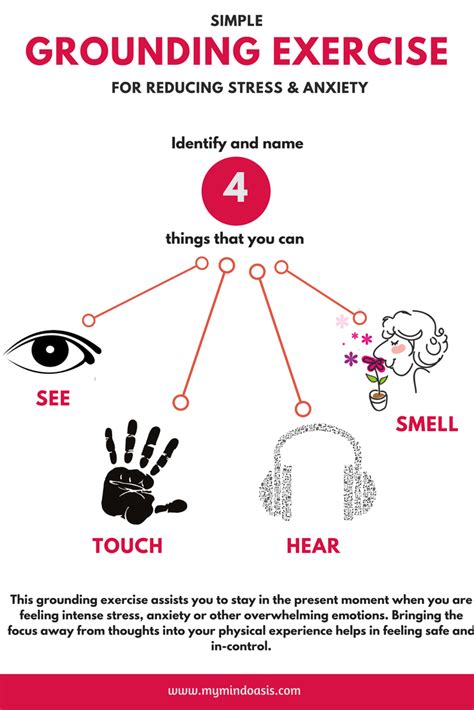Grounding Techniques for Stress Management: Reconnect with the Present Moment
Stress is a ubiquitous part of modern life, impacting our physical and mental well-being. While managing stress effectively is crucial, many traditional methods can feel overwhelming or impractical in the midst of a stressful situation. Grounding techniques offer a powerful, accessible, and immediate way to manage stress by anchoring you to the present moment, reducing anxiety, and restoring a sense of calm. This article will explore various grounding techniques and how they can help you effectively manage stress.
What is Grounding?
Grounding, also known as earthing or centering, is a mindfulness technique that helps you connect with your physical body and the present moment. When stressed, our minds often race into the past (regret) or the future (anxiety), fueling the stress response. Grounding helps to gently pull you back to the here and now, interrupting this cycle and promoting a sense of stability and control.
How Does Grounding Help Manage Stress?
Grounding techniques work by engaging your senses. By focusing on tangible sensory experiences, you shift your attention away from anxious thoughts and worries. This conscious shift activates the parasympathetic nervous system, responsible for the body's "rest and digest" response, counteracting the effects of the stress response (the "fight or flight" system). This leads to a reduction in physiological symptoms of stress like rapid heartbeat, shallow breathing, and muscle tension.
Different Grounding Techniques: Which One Works Best for You?
There's a wide variety of grounding techniques, and the best one for you will depend on your personal preferences and the specific situation. Experiment to find what works best in different contexts.
5-4-3-2-1 Technique
This simple yet effective technique involves engaging each of your five senses:
- 5 Things You Can See: Name five things you can see around you. Be specific – "the blue mug on the desk," "the green plant in the corner," not just "things."
- 4 Things You Can Touch: Name four things you can touch. This could be the texture of your clothes, the surface of a table, or the feel of your own skin.
- 3 Things You Can Hear: Identify three sounds you can hear – the ticking of a clock, birds chirping, traffic outside.
- 2 Things You Can Smell: Notice two smells, perhaps the scent of coffee, freshly cut grass, or even the faint smell of your own shampoo.
- 1 Thing You Can Taste: Identify one taste – the taste of your saliva, a piece of gum, or a sip of water.
Body Scan Meditation
This involves systematically bringing your attention to different parts of your body, noticing any sensations without judgment. Start with your toes and slowly move upwards, paying attention to the feeling of your feet on the floor, the tension or relaxation in your legs, the warmth of your hands, and so on.
Deep Breathing Exercises
Controlled breathing is a fundamental grounding technique. Inhale deeply through your nose, hold for a few seconds, and exhale slowly through your mouth. Focus on the sensation of the breath entering and leaving your body. Box breathing (inhale 4 seconds, hold 4 seconds, exhale 4 seconds, hold 4 seconds) is particularly effective.
Sensory Engagement Activities
Engaging your senses directly through activities like:
- Listening to calming music: Soothing sounds can help shift your focus from anxious thoughts.
- Taking a walk in nature: Notice the sights, sounds, and smells of your surroundings.
- Holding a comforting object: A smooth stone, a soft blanket, or a favorite toy can offer a sense of security.
- Squeezing a stress ball: The physical sensation provides a tangible anchor to the present.
How Often Should I Use Grounding Techniques?
Grounding techniques are not a one-size-fits-all solution. You can use them proactively to prevent stress buildup or reactively during stressful situations. Regular practice, even for a few minutes each day, can significantly improve your ability to manage stress and build resilience.
When to Seek Professional Help
While grounding techniques are effective for managing stress, they are not a replacement for professional help. If you're struggling with persistent or overwhelming stress, anxiety, or depression, seek support from a therapist or counselor. They can provide tailored strategies and support to help you navigate these challenges.
This information is for educational purposes only and does not constitute medical advice. Consult with a healthcare professional before making any changes to your health routine.

